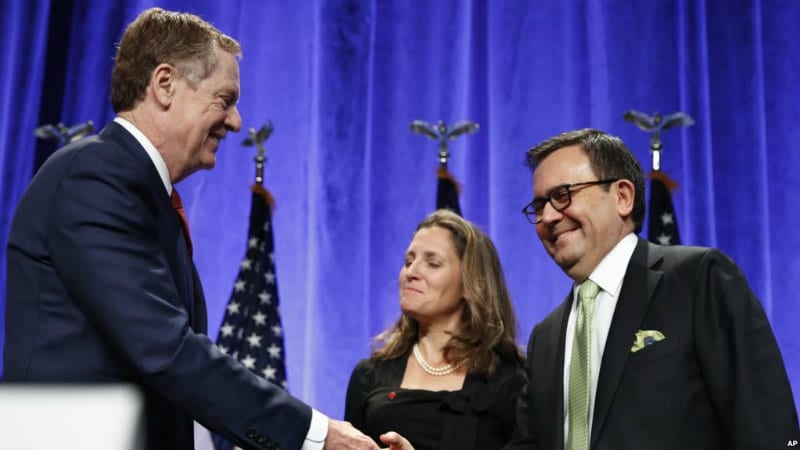
WASHINGTON – The United States, Mexico and Canada opened negotiations Wednesday to reform the North American Free Trade Agreement (NAFTA), a 1994 trade deal that was a major target in U.S. President Donald Trump’s run for office.
Trump has called NAFTA “the worst trade deal in history,” and one that has unfairly swollen the U.S. trade deficit with Mexico while allowing manufacturing jobs to migrate there.
“The issue is not tearing apart”, but instead negotiating how the agreement can “even work better,” said Mexican economic minister Ildefonso Guajardo Villarreal at an opening news conference in Washington.

National Trade Council adviser Peter Navarro, pictured at the White House in late January, says NAFTA could be transformed into two parallel U.S. bilateral deals with Canada and Mexico, or a modernization of the current trilateral deal.
Canadian Foreign Minister Chrystia Freeland said any decisions on the structure of a modernized NAFTA should not be made by simply measuring trade surpluses or deficits.
“We are the biggest client of the United States,” she said. “Canada buys more from the U.S. than China, U.K. and Japan combined. Trade is about people. It’s about creating the best possible conditions for jobs, for growth and for prosperity.”
U.S. Trade Representative Robert Lighthizer also said the interests of working people must be a high priority among the negotiators.
“For many of our farmers and ranchers, Canada and Mexico are their largest export markets,” Lighthizer said, noting those workers are “particularly vulnerable” due to low commodity prices. “We must keep their interests paramount.”
Lighthizer emphasized, however, Trump does not want “a mere tweaking” of NAFTA, which he said has “fundamentally failed many, many Americans and needs major improvement.”
Negotiators will use multiple sessions to try to come up with reforms with the aim of finishing their work before the end of the year. If the process stretches into 2018, there are worries the process could be complicated by a presidential election in Mexico and U.S. congressional elections.



